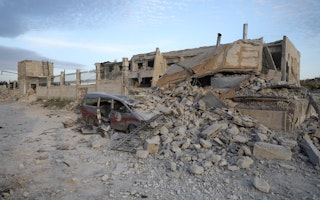The National Dialogue Quartet’s Vital Music
By Chris Stone

The euphoria of the Arab Spring is a faded memory, and the storms raging in Egypt, Libya, Yemen, and Syria have brought tragedy beyond comprehension—all of which makes Tunisia’s valiant democracy especially precious and inspiring. Although widely described as a surprise, the Nobel Peace Prize bestowed upon Tunisia’s National Dialogue Quartet provides wise reinforcement to the continuing development of open society there, and brightens that beacon of hope for all of us.
Four superb organizations comprise the Quartet—the Tunisian General Labour Union (Union Générale Tunisienne du Travail), the Tunisian Confederation of Industry, Trade and Handicrafts (Union Tunisienne de l’Industrie, du Commerce et de l’Artisanat), the Tunisian Human Rights League (La Ligue Tunisienne pour la Défense des Droits de l’Homme), and the Tunisian Order of Lawyers (Ordre National des Avocats de Tunisie).
In the words of the Nobel Committee, they “paved the way for a peaceful dialogue between the citizens, the political parties, and the authorities and helped to find consensus-based solutions to a wide range of challenges across political and religious divides. The broad-based national dialogue that the Quartet succeeded in establishing countered the spread of violence in Tunisia, and its function is therefore comparable to that of the peace congresses to which Alfred Nobel refers in his will.”
The Open Society Foundations salute the Quartet and its achievements. In the last few years, our Arab Regional Office has established a small branch office in Tunis, from which we are supporting civil society in promoting democratic practice, justice reform, and independent journalism—vital components of the democracy that the Quartet and Tunisia’s elected representatives have made possible.
The Nobel Committee’s award should resound beyond North Africa. The work of the National Dialogue Quartet reminds all of us of the power of strong civil society organizations to advance democratic governance even in the most difficult circumstances—an informal power often underestimated both by those within civil society and by those with more formal authority. We join the Nobel Committee in expressing hope that this year’s peace price “will contribute towards safeguarding democracy in Tunisia and be an inspiration to all those who seek to promote peace and democracy in the Middle East, North Africa, and the rest of the world.”
Until December 2017, Chris Stone was president of the Open Society Foundations.


